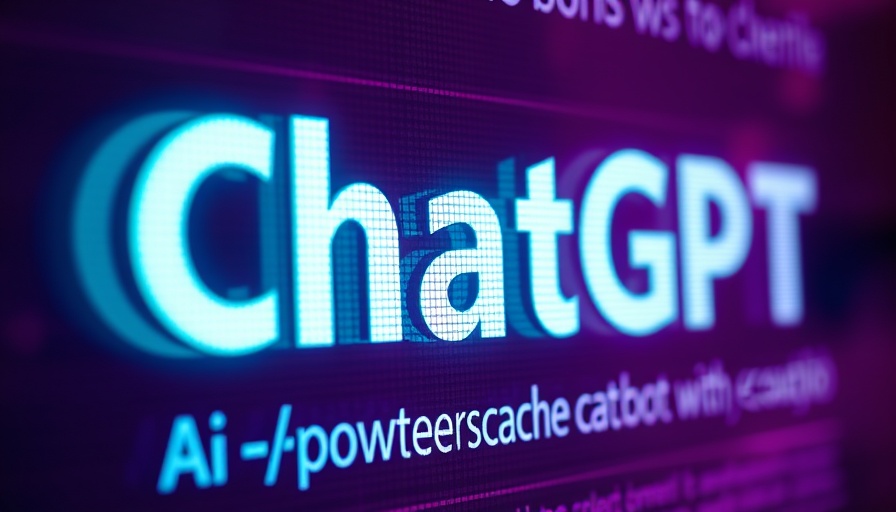
The Rise of ChatGPT: A Game Changer in AI Technology
Since its launch in November 2022, ChatGPT, powered by OpenAI, has revolutionized how we interact with AI technology. Initially designed to assist users in crafting essays and coding through simple text prompts, this chatbot now boasts astonishing 300 million weekly active users. Its capabilities have amplified significantly, setting a standard in the arena of AI chatbots.
Key Milestones in OpenAI's Journey
In 2024, OpenAI experienced substantial growth, marked by its collaboration with tech giant Apple to introduce Apple Intelligence, which integrates generative AI capabilities. The introduction of the GPT-4o model, equipped with voice functionality, and Sora, a text-to-video model, showcased OpenAI's commitment to expanding its technical reach and versatility. These advancements indicate a burgeoning intersection of AI with various media forms, enriching user experiences.
Challenges and Controversies Surrounding OpenAI
Despite its successes, OpenAI has faced challenges, including notable executive departures that shook its operational stability. The exit of key figures like Ilya Sutskever, co-founder and chief scientist, and CTO Mira Murati raised concerns about leadership continuity. Additionally, OpenAI is embroiled in ongoing legal disputes, including lawsuits for alleged copyright infringements and regulatory scrutiny that includes Elon Musk's injunction against its shift to a profit-driven model.
A Competitive AI Landscape
As of 2025, OpenAI navigates a competitive landscape, particularly from emerging Chinese AI firms like DeepSeek, which have made notable strides in the technology race. This heightened competition has prompted OpenAI to reinforce its connections with U.S. government agencies while also embarking on an ambitious data center project and preparing for one of the largest funding rounds in tech history.
Looking Ahead: The Future of AI Interaction
In the arena of AI advancements, 2025 carries promises of significant transformations. OpenAI's exploration of an “open” AI system aims to democratize access by allowing users to download models without API restrictions. This initiative parallels current trends emphasizing transparency and user empowerment in technology development.
Assessing Model Reliability: A Mixed Bag
The recent release of GPT-4.1 raised eyebrows, with tests indicating it may be less aligned than earlier iterations. Concerns have emerged regarding OpenAI’s transparency and reliability, particularly in the face of significant discrepancies in performance benchmarks compared to prior models. Such developments necessitate vigilance and scrutiny from users and industry experts alike.
The Broader Implications of AI Development
As OpenAI continues to innovate, the implications of its advancements extend beyond mere functionality. The interplay between AI and ethical considerations has never been more critical. Issues surrounding data privacy, intellectual property rights, and the societal impact of AI technologies underscore the importance of responsible development in the pursuit of innovation.
Why Understanding AI Matters
It is essential for users and developers alike to grasp the nuances of AI technologies like ChatGPT. As these tools become more integrated into various aspects of daily life, understanding their capabilities and limitations will empower users to leverage AI effectively while safeguarding against potential pitfalls.
Conclusion: Embracing the AI Evolution
In summary, as ChatGPT and other AI technologies continue to evolve, they present unique opportunities and challenges. Staying informed on the latest developments in AI can equip users with the knowledge necessary to navigate this rapidly changing landscape. For those interested in AI innovations, understanding the journey of OpenAI offers valuable insights into the future of technology and its potential.
 Add Row
Add Row  Add
Add 



Write A Comment